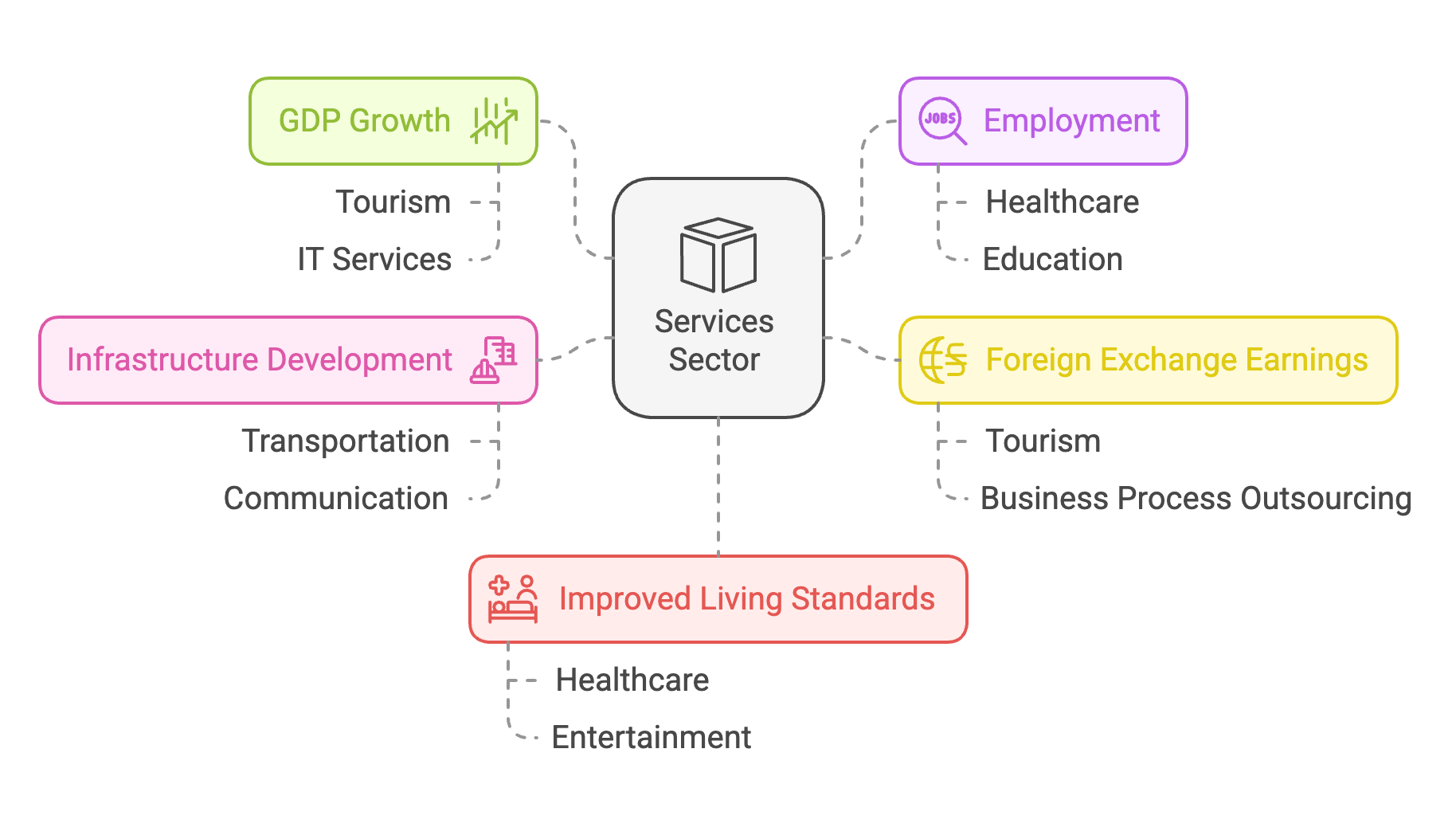Introduction to Services
What are Services?
Services are economic activities that are intangible, meaning they cannot be touched or seen in the same way as physical goods. They involve the provision of value or benefits to customers through the performance of tasks, expertise, or experiences.
Key characteristics of services include:
- Intangibility: Services lack physical form, making it difficult to evaluate them before purchase.
- Perishability: Services cannot be stored for later use; they are produced and consumed simultaneously.
- Heterogeneity: Service quality can vary depending on the provider and the specific circumstances.
- Inseparability: Production and consumption of services are often intertwined, with the customer involved in the process.
Contribution of Services
The services sector plays a crucial role in modern economies, contributing significantly to:
- GDP Growth: Services often account for a substantial portion of a country's Gross Domestic Product (GDP).
- Employment: The service sector is a major source of jobs, employing a large proportion of the workforce.
- Foreign Exchange Earnings: Services such as tourism, IT, and business process outsourcing can generate significant foreign exchange.
- Infrastructure Development: Services like transportation, communication, and banking support the overall development of infrastructure.
- Improved Living Standards: Services like healthcare, education, and entertainment contribute to better quality of life.
Reasons for the Growth of the Services Sector
Several factors have driven the rapid growth of the services sector in recent decades:
- Rising Incomes: As incomes increase, people tend to spend more on services like travel, entertainment, and healthcare.
- Changing Demographics: Factors like aging populations and increased urbanization create demand for specific services.
- Technological Advancements: Technology has enabled the development of new services and improved the delivery of existing ones.
- Globalization: Increased international trade and communication have fueled the growth of services like transportation and logistics.
- Government Policies: Supportive government policies, such as deregulation and investment in infrastructure, can promote service sector growth.
The services sector is a vital part of the modern economy, contributing to economic growth, employment, and improved living standards. Its continued growth is driven by factors like rising incomes, technological advancements, and globalization.



No Comments